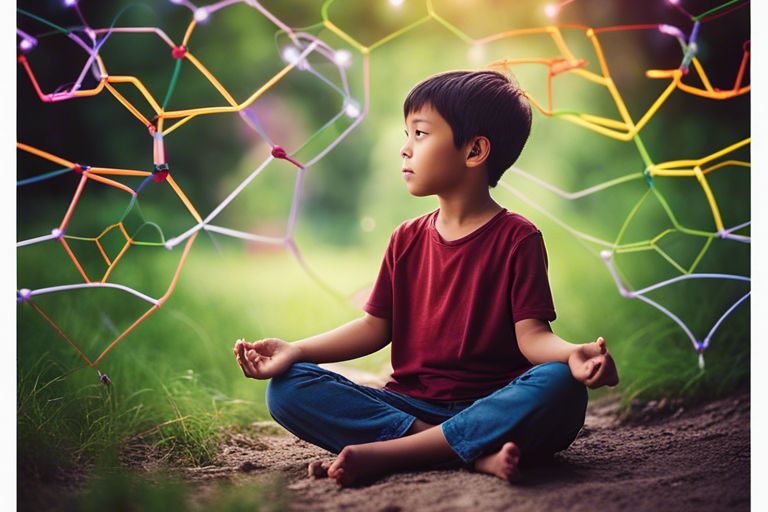It’s fascinating to explore the intricate relationship between your child’s mind and body as they grow and develop. Understanding how their thoughts, emotions, and physical experiences are interconnected can provide valuable insights into their overall well-being and development. Let’s probe into how nurturing this mind-body connection can positively impact your child’s growth and help them thrive.
Key Takeaways:
- Early experiences shape brain development: The mind-body connection in child development emphasizes that children’s early experiences and environment can significantly impact their brain development and overall well-being.
- Emotional regulation impacts physical health: There is a bidirectional relationship between emotional regulation and physical health. Developing healthy coping mechanisms and emotions early on can lead to better physical health outcomes in children.
- Importance of holistic approaches: Understanding the mind-body connection highlights the significance of holistic approaches in child development. By addressing both the mental and physical aspects of a child’s well-being, we can promote healthy development and resilience.
The Interconnectedness of Mind and Body
Defining the Mind-Body Connection
While exploring the interconnectedness of the mind and body in child development, it is vital to understand the concept of the mind-body connection. This connection refers to the link between your thoughts, emotions, and physical health, highlighting how these aspects influence each other.
The Role of Neuroplasticity in Child Development
For a deeper understanding of how the mind and body are interconnected in child development, consider the role of neuroplasticity. Neuroplasticity is the brain’s ability to reorganize itself by forming new neural connections throughout life. In children, this phenomenon plays a crucial role in learning, behavior, and overall development.
Mind and body constantly interact and influence each other, shaping your child’s cognitive and physical capabilities. When a child learns a new skill or language, their brain undergoes changes, strengthening neural pathways associated with that activity. This process is known as neuroplasticity and highlights the dynamic relationship between the mind and body in shaping your child’s development.
The Impact of Environment on Child Development
The Influence of Nutrition and Gut Health
For a child, proper nutrition is vital for their overall development. The food they consume not only fuels their body but also affects their gut health, which plays a significant role in their mental well-being. A balanced diet rich in nutrients supports healthy brain function and enhances cognitive abilities.
The Effects of Physical Activity on Brain Development
Child, engaging in physical activity is not only beneficial for your physical health but also crucial for your brain development. Regular exercise promotes the growth of new brain cells, improves concentration, memory, and enhances overall cognitive function.
Effects of Physical Activity on Brain Development
Regular physical activity has been shown to increase blood flow to the brain, which improves the delivery of oxygen and nutrients vital for optimal brain function. Additionally, exercise releases chemicals such as endorphins and serotonin, which help reduce stress, anxiety, and improve mood, all of which contribute to better cognitive performance.

Emotional Intelligence and Regulation
Recognizing and Labeling Emotions
All human beings experience a wide range of emotions, from joy and excitement to anger and sadness. Recognizing and labeling these emotions is a crucial skill in developing emotional intelligence. By understanding and acknowledging your feelings, you can better navigate through them and communicate effectively with others.
Teaching Healthy Coping Mechanisms
Healthy coping mechanisms are vital for regulating emotions and managing stress. By teaching children how to cope in constructive ways, you empower them to deal with challenges more effectively. Encouraging activities such as deep breathing exercises, journaling, or talking about their feelings can help children develop healthy coping strategies that they can carry into adulthood.
Regulation is a key component of emotional intelligence, involving the ability to manage and control your emotions in various situations. By learning how to regulate your emotions, you can adapt to different social contexts, handle conflicts more peacefully, and make sound decisions even under stress. Practicing self-regulation techniques such as mindfulness, meditation, or seeking support from loved ones can help you enhance your emotional regulation skills.
Nurturing Resilience in Children
Building Self-Esteem and Confidence
To nurture resilience in children, it is crucial to work on building their self-esteem and confidence. On a daily basis, acknowledge your child’s efforts and encourage them to embrace their strengths and learn from their mistakes. By instilling a sense of pride in their accomplishments, you help them develop the resilience needed to overcome challenges.
Fostering a Growth Mindset
Resilience is further developed by fostering a growth mindset in children. Teach them that challenges are opportunities for growth and that failure is not a permanent state but a stepping stone towards success. Encourage them to see setbacks as learning experiences and to approach new tasks with a positive attitude, knowing that their efforts will lead to improvement.
With a growth mindset, children are more likely to persevere through difficulties and develop the resilience needed to navigate the ups and downs of life with confidence and determination.
Final Words
With this in mind, it’s vital to recognize the intricate relationship between the mind and body in child development. By understanding how physical health, emotional well-being, and cognitive abilities intersect, you can better support and nurture the young minds in your care. Be mindful of, the mind and body are not separate entities but are interconnected in shaping a child’s growth and development. Embrace this knowledge and watch as children flourish and thrive under your guidance.

